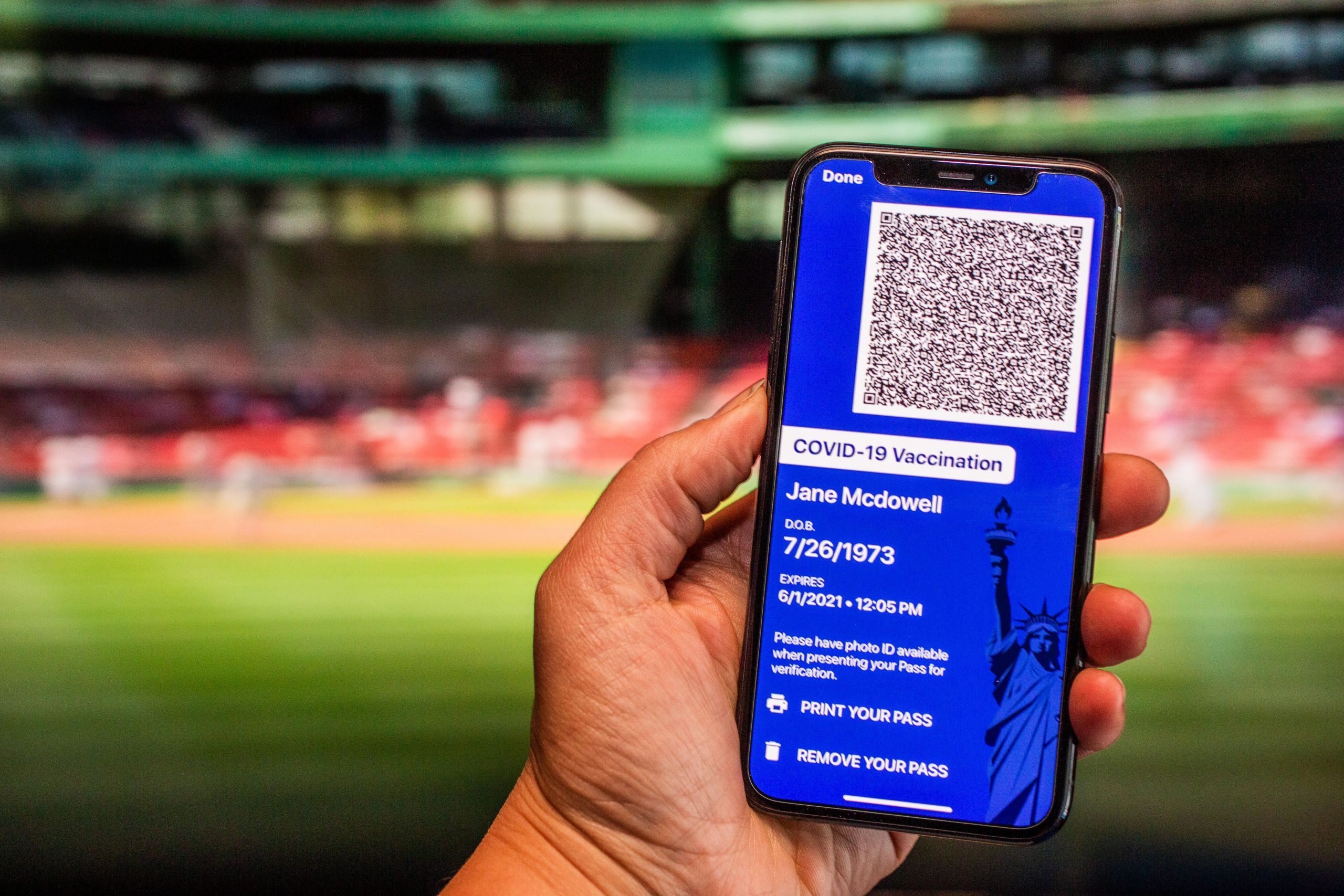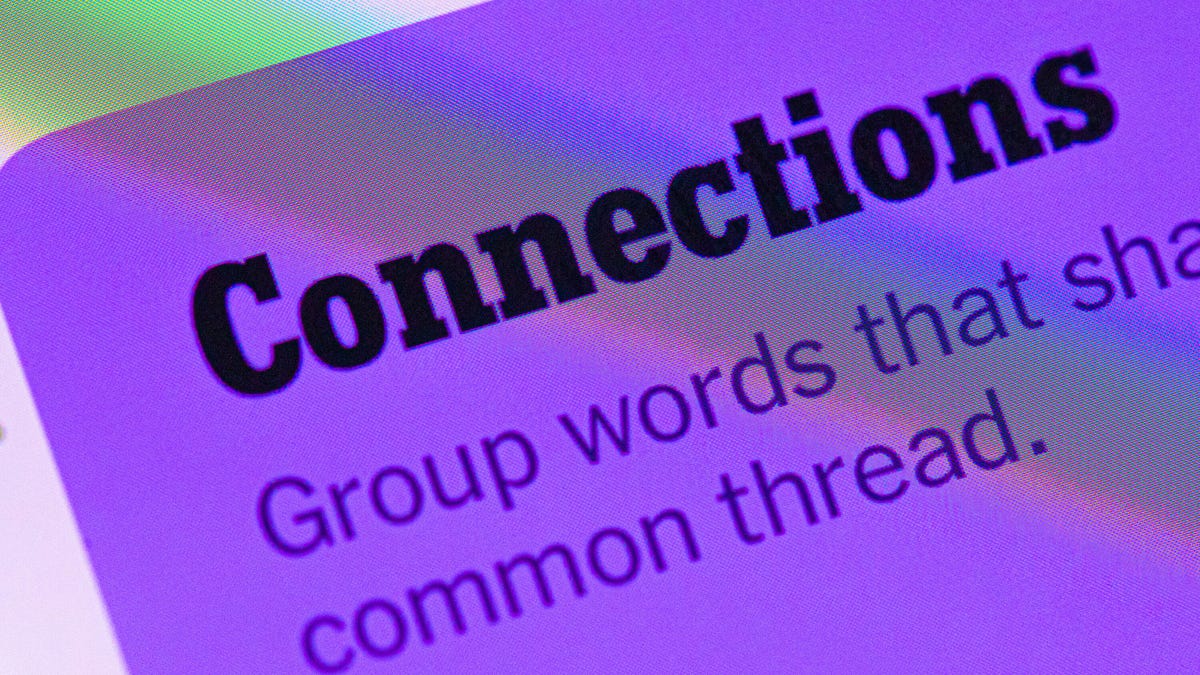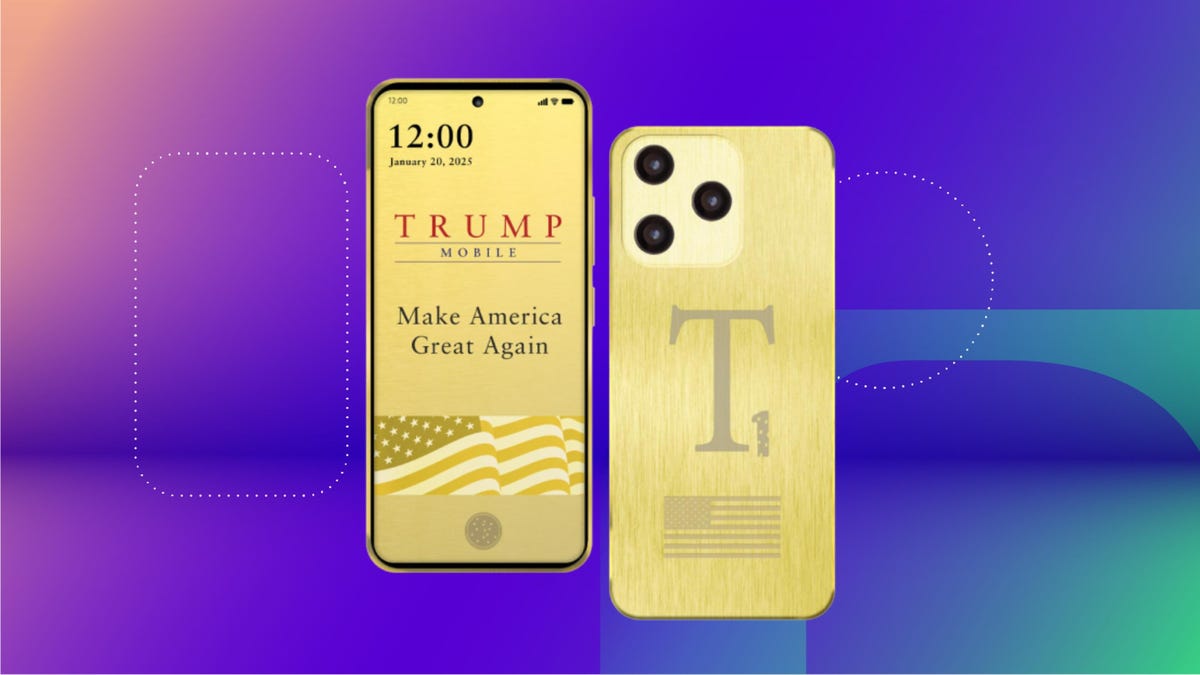Technologies
Traveling for the holidays? Here’s how to put your COVID-19 vaccine card on your phone
You may need proof of vaccination to get into restaurants, theaters and other businesses, but carrying around the physical card isn’t the smartest option.

New York City recently announced the nation’s strictest COVID-19 vaccine mandate, requiring proof of vaccination for adults and kids as young as 5 to enter restaurants, gyms, movie theaters and just about any other entertainment venue or place of business.
With the new COVID-19 omicron variant appearing more contagious than earlier strains, many other regions are following suit, so having your vaccine record handy is more important than ever. But you don’t have to keep the printed version in your wallet or purse. To prevent damage or loss, we recommend storing it in your phone instead.
Not sure how? We’ll show you ways you can store your vaccine card digitally — including the methods to use if you have an Android or iPhone, and whether or not your state has a specific app.
Which states are using vaccination record apps?
While some governors have signed orders banning so-called vaccine passports, many other states have apps that allow residents to store a digital version of their vaccine cards on their smartphones, including California, Colorado, Hawaii, New York and Louisiana.
Colorado residents, for example, can download the myColorado app: After you create an account, verify your identity and add a digital version of your driver’s license to your phone, you can add your myVaccine record to the app.
Louisiana’s LA Wallet app takes a similar approach, allowing you to add your driver’s license and proof of vaccination to your phone.
The state of California requires you to fill out a form to verify your identity, after which you’ll receive a text or email with a link to a QR code you can save to your phone. When scanned, the code will offer proof of vaccination. The link will also include a digital copy of your vaccination record.
Illinois residents can use VaxVerify, which uses Experian for identity verification.
MyIR Mobile is used by several state health departments, including Arizona, Louisiana, Maryland, Mississippi, North Dakota, Washington, West Virginia and Washington, DC.
Delaware, New Mexico and Michigan are also using web portals for residents to access their vaccination status online.
New Yorkers have two app options: The Excelsior Pass app and NYC Covid Safe.
We’ll continue to update this feature as more states offer apps and features to store your COVID-19 vaccine card online. And keep in mind if you get a booster dose, you’ll need to re-upload your vaccine card.
What if my state doesn’t have an app that lets me store my card?
If your state doesn’t have an iPhone or Android app that lets you store a copy of your vaccination record, there are other ways to keep it on your phone. What qualifies as valid proof, however, can vary by state, city, county and even business.
Some places may accept a photo of your physical vaccination card: For example, concert producer AEG Presents accepts a «physical copy of a COVID-19 Vaccination Record Card, a digital copy of such card or such other proof as is permitted locally.» But you definitely want to research first if your city, county or state does the same.
Along with public school mandates, hundreds of private colleges are also requiring students and employees to be vaccinated: Seattle University, which requires students to be vaccinated to attend in-person classes, offers an online form to upload photos of the front and back of your vaccination card.
When in doubt, look for information on the business’s website or call the local health department and ask for clarification. This is bound to save you time and the risk of being turned away at the door.
Can I store my car with Google Pay or Apple Wallet?
If you have an iPhone ($332 at Amazon), you can store your COVID-19 vaccination card on your Apple Wallet to present whenever you need to show you’re fully vaccinated. (You can keep a copy in the Health app, too.) The WatchOS 8.1 update allows you to keep your card handy on your Apple Watch.
If you have an Android, you can add your vaccine card to the Google Pay app and even add a shortcut icon to your home screen to find it quickly.
Samsung Pay can also store your vaccine record
Samsung now gives Galaxy phone owners the option to add proof of vaccination to Samsung Pay. You’ll need to download the CommonHealth app (Samsung’s partner) from the Google Play Store and follow the prompts in the app to verify your vaccination status.
Once the app confirms you’veindeed gotten the jabs, you’ll be prompted to download a Smart HealthCard to Samsung Pay which you can show to anyone requesting you show proof of vaccination. It beats having to fiddle around with photo albums and tapping through multiple screens before you’re able to show it to a bouncer or maître d’.
Will a picture of my vaccine card work?
The simplest way to have a digital record of your vaccine status is to snap a photograph of your vaccination card and keep it on your phone. Even the CDC recommends keeping a picture of your card as a backup copy.
You can make the photo a favorite to quickly locate it or store it in a notes app, a folder or somewhere easy to remember. Make sure you’re in a well-lit area and get close enough to the card that the dates and other details are legible. I also suggest putting the card on a dark surface, and try to eliminate shadows from your arms or the phone itself.
Here’s one way iPhone users can save their vaccination card as a new photo album: Open the Photos app, select the Albums tab and then tap the plus (+) sign in the top-left corner followed by New Album. Give the album a name and then tap Save. Next, select the photos of your card to add them to the album.
On an Android, it depends on which app you’re using, but the process should generally be the same. If you’re using the Google Photos app, open the app and then select the picture of your vaccination card. Tap the three-dot menu button in the top-right corner, followed by the Add to Album button. Select +New album and give it a name such as «Vaccination Card» and tap the checkmark button when you’re done.
What else can I use?
I’ve had a large number of readers reach out to me about this article, each one offering advice and guidance about storing a proof of vaccination card.
Some suggestions include well-known airport security service Clear. In fact, some concert and exhibition halls require that attendees use Clear to verify their vaccination status to attend a show. You can go to clearme.com/healthpass to download the app and get your card added.
VaxYes is another service that verifies your vaccination status and then adds your vaccination card to your Apple Wallet. I’ve read that you can add your card to the Google Pay app, but after signing up and going through the process myself, I don’t see the option on a Pixel 5 running Android 12.
If your local municipality or employer used the CDC’s Vaccine Administration Management System, then you can use the VAMS website to access your vaccination records. I had more than one reader reach out to me about using this system to show proof of vaccination, but without an account myself, I’m unable to go through the process of accessing a vaccination record.
Another suggestion I received from multiple readers is to use a scanner app on your phone and store a scanned copy of your vaccination card in something like your OneDrive personal vault or a password manager (almost all of them offer some sort of secure file storage) instead of storing the photo in Google Photos or Apple’s iCloud photos. On an iPhone, you can use the scanner that’s built into the Notes app. On Android, Google’s Stack PDF scanner will be enough to get the job done.
This story will update as the national vaccine conversation continues. For more information about the booster shots from Pfizer, Moderna and Johnson & Johnson, make sure to read this primer.
The information contained in this article is for educational and informational purposes only and is not intended as health or medical advice. Always consult a physician or other qualified health provider regarding any questions you may have about a medical condition or health objectives.
Technologies
Today’s NYT Connections Hints, Answers and Help for Feb. 7, #972
Here are some hints and the answers for the NYT Connections puzzle for Feb. 7 #972

Looking for the most recent Connections answers? Click here for today’s Connections hints, as well as our daily answers and hints for The New York Times Mini Crossword, Wordle, Connections: Sports Edition and Strands puzzles.
Today’s NYT Connections puzzle is super-tricky. You’ll need to know your symbols to match them up accordingly. Read on for clues and today’s Connections answers.
The Times has a Connections Bot, like the one for Wordle. Go there after you play to receive a numeric score and to have the program analyze your answers. Players who are registered with the Times Games section can now nerd out by following their progress, including the number of puzzles completed, win rate, number of times they nabbed a perfect score and their win streak.
Read more: Hints, Tips and Strategies to Help You Win at NYT Connections Every Time
Hints for today’s Connections groups
Here are four hints for the groupings in today’s Connections puzzle, ranked from the easiest yellow group to the tough (and sometimes bizarre) purple group.
Yellow group hint: Roll those bones.
Green group hint: Math time.
Blue group hint: A comma is one.
Purple group hint: Not uppercase.
Answers for today’s Connections groups
Yellow group: Pips on a die.
Green group: Symbols used in arithmetic.
Blue group: Punctuation marks.
Purple group: Lowercase letters.
Read more: Wordle Cheat Sheet: Here Are the Most Popular Letters Used in English Words
What are today’s Connections answers?
First, here’s that grid full of symbols again.
And here are the answers, sorted into groups.
The yellow words in today’s Connections
The theme is pips on a die. The four answers are five, four, three and two.
The green words in today’s Connections
The theme is symbols used in arithmetic. The four answers are divided by, equals, minus and plus.
The blue words in today’s Connections
The theme is punctuation marks. The four answers are colon, ellipsis, period and quotation mark.
The purple words in today’s Connections
The theme is lowercase letters. The four answers are I, L, T and X.
Technologies
Black Ops 7 Double XP Weekend and Free Trial Are Live Now
Whether you already own Black Ops 7 or you’re taking advantage of the free weekend, level up your account twice as fast during this double XP weekend.

Call of Duty: Black Ops 7 developer Treyarch is letting new players try the game for free this weekend with a new multiplayer free trial. Even if you haven’t bought Black Ops 7, you can try out the game’s Zombies and Multiplayer modes during this time. If you’re already knee-deep in the latest Call of Duty game, there’s still something to get excited over — a double XP weekend is running in tandem with the free weekend, letting you level up twice as fast as you cut down new and returning players.
The latest double XP weekend is live now, featuring a sole double account level XP boost this time around. This double XP weekend runs from Thursday, Feb. 5, to Monday, Feb. 9. Anyone playing Black Ops 7 during the event period has a universal double account XP earn rate applied to their account. If you log in now, you can hop into battle and reap the rewards of this double XP weekend right away.
Unlike other double XP weekends, this event doesn’t feature the Quad Feed boost. That means players won’t be able to benefit from all four customary double XP weekend boosts at the same time. Your double XP tokens will also be locked for the duration of the event.
Here’s everything you need to know about this double XP weekend. If you’re looking for something else to play, see our recommendations for the best game subscription services.
When does the double XP weekend start in Call of Duty: Black Ops 7?
This double XP weekend kicked off Thursday at 1 p.m. ET and is live now.
Not sure when the double XP weekend went live for you? Here’s when the event started in your time zone:
- ET: Feb. 5 at 1 p.m.
- CT: Feb. 5 at noon.
- MT: Feb. 5 at 11 a.m.
- PT: Feb. 5 at 10 a.m.
It’s always worth starting your game before your gaming session, if possible. As with every Black Ops 7 patch, the update will require you to download new content and restart the application.
When does the double XP weekend end in Call of Duty: Black Ops 7?
Some double XP «weekends» are much longer events, lasting five to seven days. The current double XP weekend isn’t nearly that long. This double XP weekend will end on Monday. Your double XP tokens will once again unlock after this time.
Here’s when the double XP weekend will end in your time zone:
- ET: Feb. 9 at 1 p.m.
- CT: Feb. 9 at noon.
- MT: Feb. 9 at 11 a.m.
- PT: Feb. 9 at 10 a.m.
Does Call of Duty Warzone have double XP this weekend?
Call of Duty Warzone has a double XP weekend running in tandem with Black Ops 7. That means Warzone players will also be able to benefit from this boost by leveling up their accounts, weapons and battle passes at twice the normal speed.
New players have a chance to level up the weapons they unlock from the new and improved Warzone Armory, and returning players can continue unlocking new attachments for the suite of Black Ops 7 weaponry added to Warzone.
Black Ops 7 double XP FAQ
Technologies
Trump Phone Looks Different, Costs More and Won’t Be Made in the US, Report Shows
The T1 looks different (again), and its specs and pricing have changed, according to a model handset shown in a video call to The Verge.

Trump Mobile executives have shown off a handset they say is a near-production model of the T1 phone to The Verge, according to a report Friday afternoon. Among other appearance changes, the smartphone appears to have a completely different camera array design than the one still shown on the T1 purchase page.
The Verge says it spoke with two Trump Mobile executives over a video call, where they held up the phone so it could be seen. The interview follows doubts about whether the phone will ever be released, after its second advertised launch date of the end of 2025 came and went without any status updates.
As of Feb. 6, the phone’s webpage still lists it as being released «later this year,» which is the same thing it said last year.
Trump Mobile launched in June last year with a $47.45-a-month mobile phone plan, and currently sells refurbished Apple and Samsung phones ranging from $369 to $629 while the wait for the T1 phone continues.
The Trump phone, initially announced to be made in the US, was supposed to launch in August 2025. But when it became clear that domestic large-scale smartphone manufacturing would not be possible, Trump Mobile dropped the «made in the US» claim.
Now, the site simply calls the phone «Proudly American» without specifying what that means for a device manufactured overseas.
The site is still accepting $100 deposits on the phone. The website claims it will have a 6.25-inch punch-hole AMOLED screen, a 50MP main rear camera with two 2MP lenses, a 16MP front-facing camera, a 5,000-mAh battery, a fingerprint sensor, face unlock and 256GB of expandable storage.
According to the model that The Verge saw on its video call this week, however, the screen looks a little larger and has a waterfall display with curved edges, as well as a vertical camera array. That one will reportedly run on a Qualcomm Snapdragon 7-series processor, feature 512GB of storage, and include a 50MP front-facing camera. According to the report, the T1 logo will also disappear before launch, though the phone will keep the American flag imagery.
It’ll also now cost more, according to the report. Those who have already put down a $100 deposit are locked into the $499 total price, but everyone else who wants this golden Trump phone will pay an unknown amount more. It will be under $1,000, the report says.
According to the executives speaking to The Verge, the phone has been delayed because the company decided to take its time and «skip our first initial entry-level phone that we were going to kind of introduce and be quick to the market.» They told The Verge it’s being made in a «favored nation» with «final assembly» in Florida. It’s unclear what qualifies another nation as «favored» to handle most of the assembly of the T1 phone.
There’s no word yet on the T1 phone’s launch date, but its sellers are reportedly eyeing a March release window.
You can read the full report on The Verge, including photos of the phone as it currently looks. Trump Mobile did not immediately respond to a request for comment.
-

 Technologies3 года ago
Technologies3 года agoTech Companies Need to Be Held Accountable for Security, Experts Say
-

 Technologies3 года ago
Technologies3 года agoBest Handheld Game Console in 2023
-

 Technologies3 года ago
Technologies3 года agoTighten Up Your VR Game With the Best Head Straps for Quest 2
-

 Technologies4 года ago
Technologies4 года agoBlack Friday 2021: The best deals on TVs, headphones, kitchenware, and more
-

 Technologies5 лет ago
Technologies5 лет agoGoogle to require vaccinations as Silicon Valley rethinks return-to-office policies
-

 Technologies5 лет ago
Technologies5 лет agoVerum, Wickr and Threema: next generation secured messengers
-

 Technologies4 года ago
Technologies4 года agoOlivia Harlan Dekker for Verum Messenger
-

 Technologies4 года ago
Technologies4 года agoiPhone 13 event: How to watch Apple’s big announcement tomorrow
